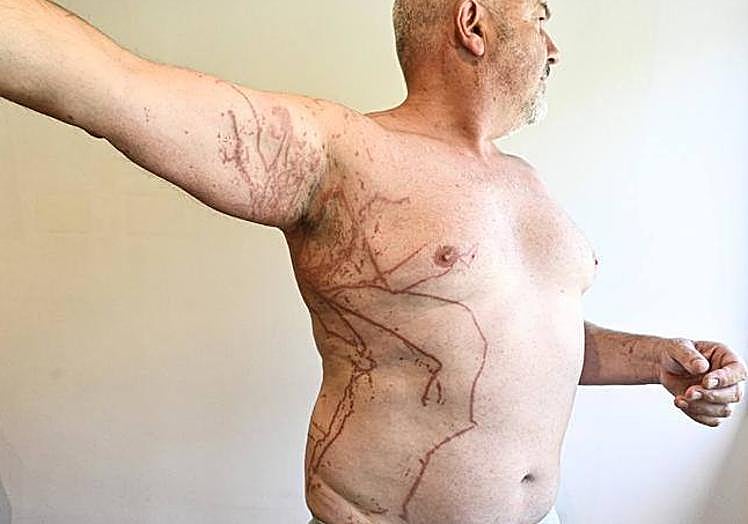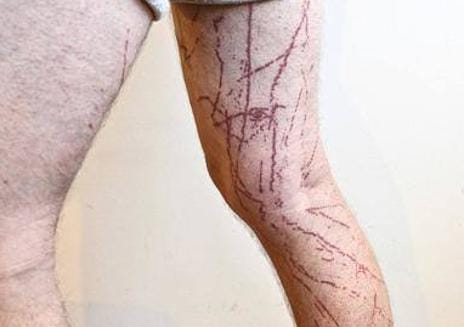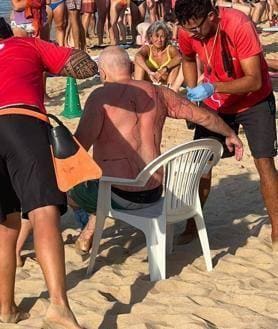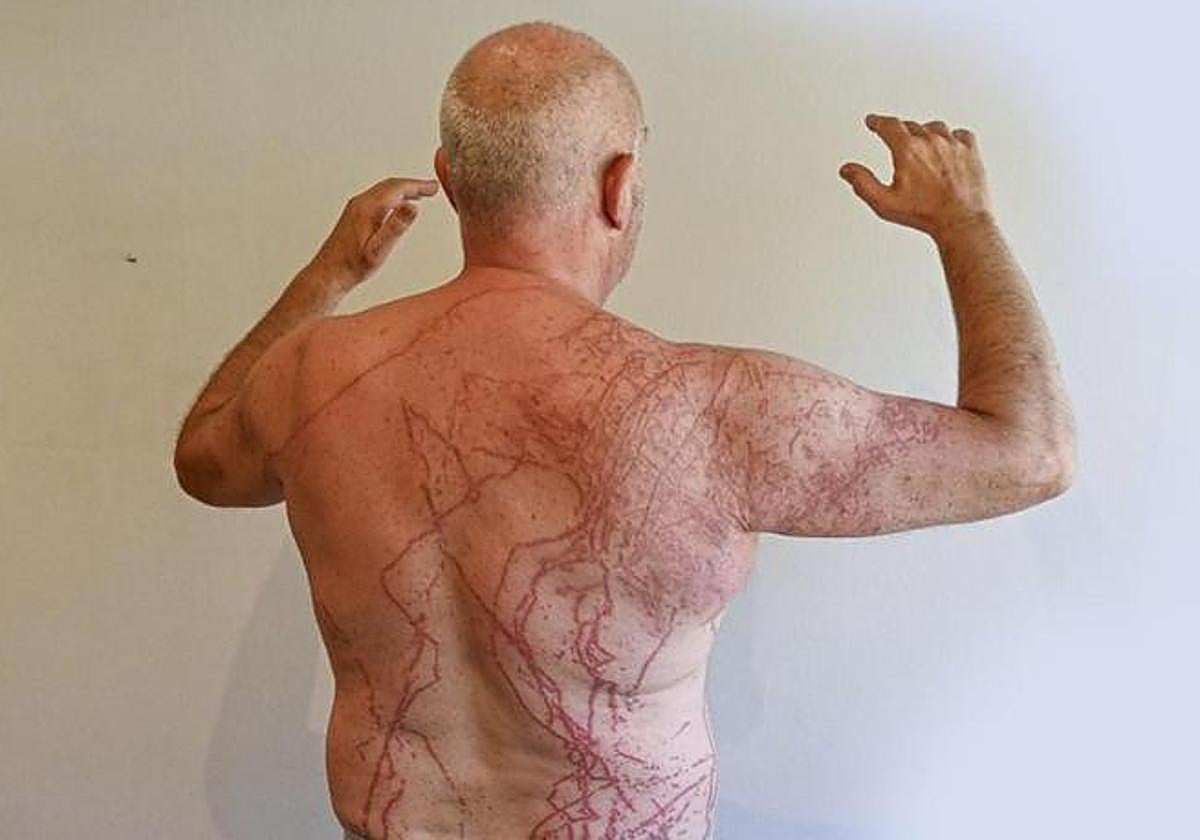The sting of a Portuguese man o' war: 'It was one of the worst days of my life and at times I thought I was going to die'
A Spanish man from Guipuzcoa suffered convulsions and was hospitalised for ten hours after a horrific encounter with this 'false jellyfish' on a beach in San Sebastian in the north of Spain. This is his horrific story...
Iñigo Villamía
San Sebastián
Tuesday, 29 August 2023, 18:40
"If it had happened to me at a different time and without people around to help me so quickly, I might never have been able to get out of the water."
These are the moving words of 58-year-old Javier Diaz de Guereñu, from Toulouse, after he survived an encounter with a Portuguese caravel. He was stung last Tuesday 22 August while swimming at Ondarreta beach in San Sebastián in the north of Spain.
"It was undoubtedly one of the worst days of my life and at times I thought I was going to die," he told SUR. Now he is trying to digest the harsh reality that the numerous marks this 'false jellyfish' left on his skin may remain there permanently. The wounds are on his back, armpits, legs and a large part of his right arm.
It all happened at 7pm and, just minutes before, Javier had left his wife at the Bentaberri sports centre. It was hot and they wanted to take a dip. She, alerted by the presence of these organisms on the coast of Gipuzkoa, decided to take a dip in the swimming pool instead. He, however, opted for the sea. Aware of the situation, "the first thing I did as soon as I arrived was to look at the flag, which was green, and take a walk along the shore," the Spaniard said. "When I saw that everything was in order, I put on my goggles and fins and went into the water". That day, however, his route was not the usual one. "Normally I usually go to the island, but as a precaution I decided to stay between the bathers and the gabarrón," Javier said.
After half an hour of a "nice" swim and constant glances at his surroundings to see if he detected the presence of a caravel, Diaz de Guereñu started to swim on his back until, suddenly, he felt an "incredible shock" on his right shoulder. "I was immediately aware of what had happened to me because I felt as if I had been wrapped in a metal net with a continuous high-voltage current," he said. So he turned around and "shot" towards the rescuers "because if I didn't, I couldn't see that I would make it," he said.
The pain was unbearable. So much so that Javier was forced to use "all the strength he had inside him" to be able to stand up and call for help. "Everything collapses, your lungs shrink and you run out of air," he said. Several people needed to pull him out of the water.
Seizures begin
Once on the sand, they sat him on a chair and the convulsions started. "I was very dizzy and the tentacles were still stuck in my skin, releasing the venom". The rescuers, following protocol, proceeded to remove them, but he had so many that, between screams, Diaz de Guereñu could only ask for more help. "I asked the people who were there to please put on gloves and help remove the tentacles and then I asked the children to bring me buckets full of salt water to pour over me," Javier added. After a few minutes, an ambulance arrived at Ondarreta and Javier was given oxygen, several injections and some pills to reduce the pain.



"From that moment on, I don't remember anything until I woke up in my hospital gown," he said. "Despite the shot they had given me", he said, he was still convulsing and could not stop screaming. Everything changed when they put him in a shower for about ten minutes. "From there, still a bit dizzy, they took me to a bed with ice, which is where the ordeal finally ended. Until then, Javier had suffered like never before for two hours and had broken three of his teeth as a result of the stress.
Thanks to the "splendid" care provided by five doctors and ten nurses at Donostia Hospital, the 58-year-old was able to spend a peaceful night under observation. "At 4am they stopped giving me medication and at 8am I was discharged," he said.
Since then he has been taking medication to completely eradicate the pain of a sting that will force him to spend the next few months out of the sunshine. "I'm going to continue swimming in the sea, but I'm sure that not here, because I've been stung by sabirons and different types of jellyfish, but nothing has been like this," he said.
Begoña Sanz, a witness to what happened, said: "I had chills just listening to his screams from the moment he came out of the water until the ambulance arrived". Javier wanted to thank the good care received by the lifeguards and bathers on the beach, as well as the great work of all the health workers who attended him once he was admitted. "Thanks to everyone for the good treatment they gave me at all times. They saved my life," he said.
